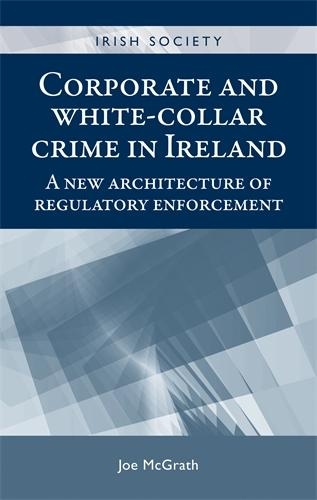
Corporate and White-Collar Crime in Ireland: A New Architecture of Regulatory Enforcement
(Hardback)
Publishing Details
Corporate and White-Collar Crime in Ireland: A New Architecture of Regulatory Enforcement
By (Author) Joe McGrath
Manchester University Press
Manchester University Press
1st July 2015
United Kingdom
Classifications
Professional and Scholarly
364.16809415
Physical Properties
Hardback
224
Width 156mm, Height 234mm
Description
This book explores the emergence of a new architecture of corporate enforcement in Ireland. It is demonstrated that the State has transitioned from one contradictory model of corporate enforcement to another. Traditionally, the State invoked its most powerful weapon of state censure, the criminal law, but was remarkably lenient in practice because the law was not enforced. The contemporary model is much more reliant on cooperative measures and civil orders, but also contains remarkably punitive and instrumental measures to surmount the difficulties of proving guilt in criminal cases. Though corporate and financial regulation has become an area of significant interest for academics, researchers and those with an interest in corporate affairs, this sudden surge of interest lacks a tradition of scholarship or any deep empirical and contextual analysis in Ireland. This book provides that foundation. It is likely to stimulate an extensive conversation on corporate regulation and governance in Ireland. It is also likely to provide a platform for researchers further afield with an interest in comparative study with Ireland. -- .
Reviews
'Joe McGrath's study of the regulation of corporate and white-collar crime in Ireland is timely and important...What emerges is an impressive, context-sensitive account of policy change which links legal forms to cultural, social and historical factors in an enlightening and insightful way.'
Paul Almond, University of Reading, Dublin University Law Journal
'Not only is Dr McGrath's work topical, it is essential...Dr McGrath's work provides an invaluable record of Ireland's experience of corporate and white-collar crime. It is a fascinating read insofar as it serves to remind us of corporate, and indeed, political, scandals of the past and the inadequacies displayed by the State in responding to them. Dr McGrath deserves to be commended for his sedulous treatment of his subject. This book should be the vade mecum for our Government when considering whether the architecture of enforcement in this jurisdiction is robust. The question that remains is whether any such consideration will be undertaken and, if undertaken, conducted comprehensively.'
Shelley Horan, Barrister-at-Law, Law Library, Irish Business Law Review
Author Bio
Joe McGrath is Lecturer in Law at Sutherland School of Law, University College Dublin
